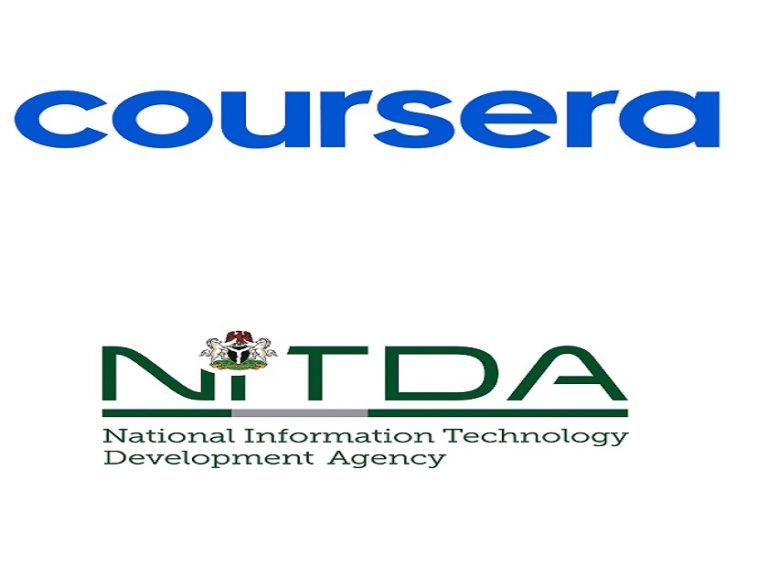NITDA Partners with Edtech Platform, Coursera, Enables Digital Skill Acquisition for Nigerians

In a press statement, Minister of Communications and Digital Economy, Isa Ali Pantami has launched a digital skill acquisition programme in partnership with the edtech platform, Coursera. This announcement comes immediately after the inception of Nigeria’s Startup Bill, catalyzing the tech ecosystem.
The programme under the auspices of the National Information Technology Development Agency (NITDA) is set for three years and aims at empowering twenty-four thousand Nigerians with digital skills in various fields. “We are championing a paradigm shift of prioritizing hard, soft and social skills over theory and this collaboration will go a long way in supporting this shift,” Pantami said.
“Coursera is one of the world’s top online learning platforms hosting thousands of courses for some of the best universities and companies, and has remained at the forefront of providing the global society with the education and resources it needs to build and maintain digital systems”.
Pantami also pointed out that the Memorandum of Understanding (MoU) with Microsoft, to train five million Nigerians is in line to gear digital transformation as well as position the country for the fourth industrial revolution.
“The recent Memorandum of Understanding (MoU) entered into, with Microsoft, to train five million Nigerians in various fields of technology, is part of the government’s efforts to fulfil the requirements for digital transformation as laid down in the Nigeria Digital Economy Policy and Strategy (NDEPS) document.”
The minister further noted that Coursera in partnership with Covenant University, a private university in the country has been remarkable.
“I have no doubt that this partnership has had a huge impact on the institution’s excellent standing. I, therefore, request that Coursera engage more academic institutions, at least one, in each geo-political zone and bring their expertise to bear within the identified environments.”
Of the over 200 million citizens in the country, a twenty-four thousand target seems relatively indifferent to the number that may be needed to identify a digital-wise country; however, this is a step towards sustainable creation of employment and government’s involvement in the growing sector.